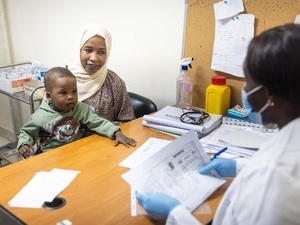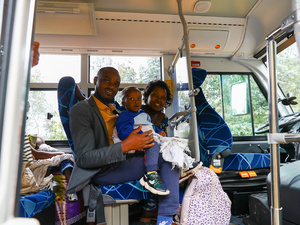Rwanda: latest on involuntary return of Congolese
Rwanda: latest on involuntary return of Congolese
More than 6,000 Congolese refugees have returned home under duress from camps in Rwanda to North Kivu according to statistics provided by the Rwandan government. The movement organised jointly by the government of Rwanda and rebel group, Congolese Rally for Democracy (RCD/Goma) has not been voluntary, with many refugees reporting pressure by Rwandan authorities for them to leave the camps. Repatriation convoys have continued to leave Gihembe camp in Byumba Prefecture, northern Rwanda and Kiziba in Kibuye Prefecture, western Rwanda, on a daily basis. Both camps have a total of 31,923 refugees.
High Commissioner Ruud Lubbers last Thursday wrote to Rwandan President Paul Kagame to express concern about the forced returns to north Kivu. In his letter, he requested the Rwandan government to end the operation which he termed "neither voluntary nor sustainable".
The number of refugees returning under pressure declined late last week, following a visit to both camps by Rwanda's the Minister of State for Local Government and the UNHCR representative, who told the refugees that they did not have to leave Rwanda if they did not want to. UNHCR also assured refugees that the agency would continue to provide protection and assistance to refugees who did not wish to return home at this time. The head of the refugee agency informed refugees that return assistance would be given to them whenever they were ready to go home.
He gave the assurances following complaints from refugees that local officials warned them that the current return operation was their last chance to return home with assistance and that NGOs would soon cease to provide aid inside Rwanda.
Meanwhile, a UNHCR team which visited a transit centre in Kichanga, 80 km north of Goma, where refugees arriving from Rwanda have been settled, reported that they were being accommodated in three old factory buildings without doors, windows or proper roofing. The majority of those at the centre were women and children. Out of 11 people interviewed by one of our teams in Kichanga, eight said they had been forced to leave while two said they had left voluntarily. Another UNHCR team spoke to former refugee committee members who said their return had been organised on a voluntary basis. But the team reported that one old man who was not satisfied with the move was prevented by other refugees from making a statement.









